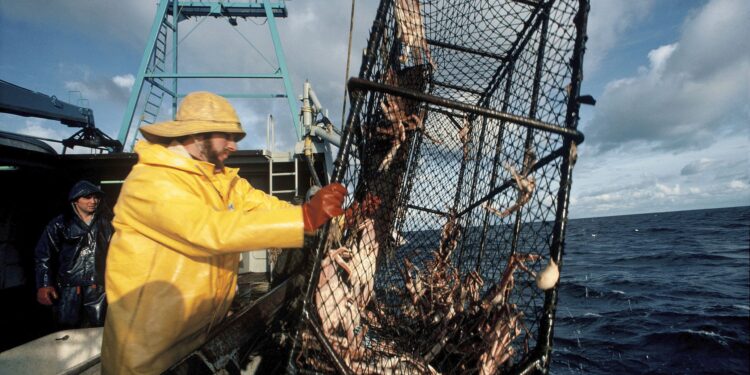A billion crabs have vanished from the Bering Sea and no one knows why.
The Alaska Department of Fish and Game canceled the winter snow crab season in the Bering Sea after determining that 90% of the population has disappeared in the last two years. While the news is bad for commercial fishermen and seafood lovers, experts think it may bode much worse for the ecosystem, according to CBS News.
“Did they run up north to get that colder water?” fisherman Gabriel Prout said in an interview with the outlet. “Did they completely cross the border? Did they walk off the continental shelf on the edge there, over the Bering Sea?”
The 90% population plunge came between 2019 and 2021, and surveys now show 2022 counts have dropped even further, Miranda Westphal, a biologist with the Department of Fish and Game, told Alaska Public Media.
1 billion crabs gone in 2 years – a 90% drop in population.
€200m blow to the seafood economy.
Damage to ecosystem suspected.
Alaska snow crab season canceled as officials investigate disappearance of an estimated 1 billion crabs – CBS News https://t.co/RzdThpuxPh
— Eoin English (@EoinBearla) October 14, 2022
“In 2021 when they surveyed, we saw the largest decline we’ve ever seen in the snow crab population, which was very startling, I think, for everyone,” Westphal said.
The risks of harvesting snow crabs and the Alaska King Crab from the tempestuous Bering Sea have been dramatized by the Discovery reality TV series “Deadliest Catch.” The show, which has aired since 2005 and is narrated by Mike Rowe, follows multiple commercial fishing crews as they struggle to haul in as many of the lucrative shellfish as they can.
State Fish and Game researcher Ben Daly who monitors Alaska’s fisheries, which produce 60% of the nation’s seafood, said he doesn’t know what happened to the crab population.
“Disease is one possibility,” Daly told CBS News.
Experts blame climate change, and note the Bering Sea has seen record marine heat in recent years, especially between 2014 and 2016. The crabs are adapted to the frigid temperatures and can’t easily survive even slightly warmer waters.
“We’ve seen warm conditions in the Bering Sea the last couple of years, and we’re seeing a response in a cold adapted species, so it’s pretty obvious this is connected,” Daly said. “It is a canary in a coal mine for other species that need cold water.”
It is the first time in the history of the state, which provides 60% of America’s seafood, that snow crab harvesting season has been canceled.
“Management of Bering Sea snow crab must now focus on conservation and rebuilding given the condition of the stock,” Alaska Fish and Game said in a statement. “Efforts to advance our science and understanding of crab population dynamics are underway.”
Prout called for a relief program for fisherman, who stand to lose their livelihoods for at least the year. When asked what he and his fellow fishermen can do, Prout told CBS it was in the hands of a higher power.
“Hope and pray,” he said. “I guess that’s the best way to say it.”











